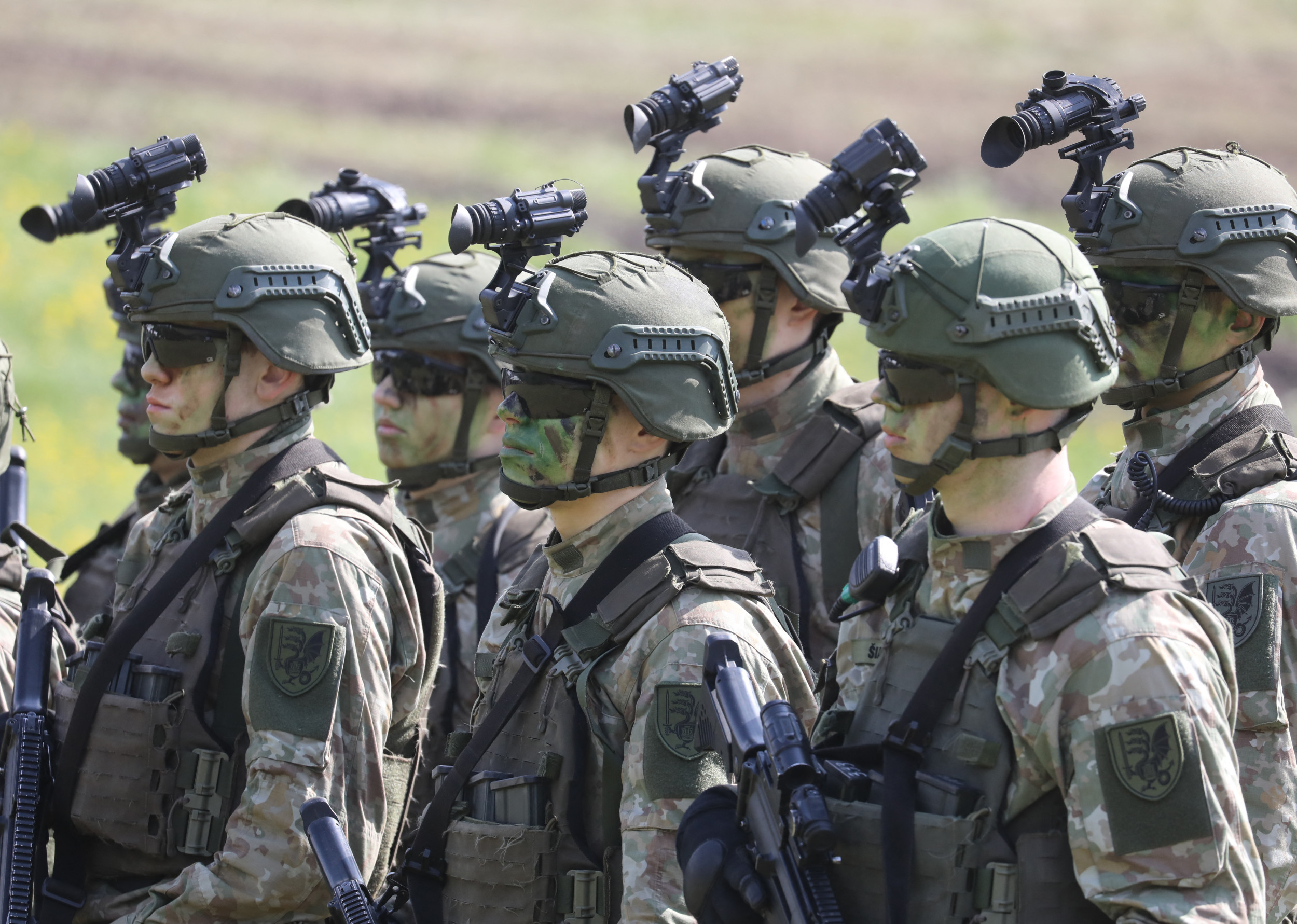A German court sentenced a Russian man to life in prison Wednesday after he was convicted for a 2019 killing in Berlin that judges said was ordered by federal Russian authorities.
Vadim Krasikov, 56, was provided a false identity, fake passport and other resources for the slaying in broad daylight of 40-year-old Zelimkhan "Tornike" Khangoshvili, the court said. Khangoshvili was a Georgian citizen of Chechen ethnicity. Prosecutors said that the slaying was a retaliatory move for his "enmity toward the Russian state" and involvement in the second Chechen war, Al Jazeera reported.
The incident spurred the German government to oust two Russian diplomats, and Russia responded with a reciprocal move. The Berlin court that convicted Krasikov of murder labeled the killing, which worsened diplomatic tensions between Moscow and Berlin, as "state terrorism."
"The central government of the Russian Federation was the author of this crime," presiding judge Olaf Arnoldi said. "It commissioned the accused."
The Kremlin has denied any connection to the killing and called the allegations "absolutely groundless."

Defense lawyers had asked the court to acquit their client, who claimed a case of mistaken identity.
Judges said Krasikov bore "particularly grave responsibility" for the slaying, meaning he won't be entitled to the automatic parole after 15 years that is customary in Germany.
German government spokesman Steffen Hebestreit declined to comment immediately on the verdict.
The outcome of the trial could stoke new tensions between Germany and Russia at a time when the new government of Chancellor Olaf Scholz is trying to find its foreign policy footing with Moscow.
The victim's relatives, who under German law were allowed to take part in the trial as co-plaintiffs, accused Russia last week of trying to "send a message" to its political enemies by killing Khangoshvili.
The presiding judge said that the victim had considered himself a Chechen patriot and had taken part in fighting against Russian forces in Chechnya from 2001 onward.
In 2004, Khangoshvili led a group of fighters who carried out an attack on a police station in the Russian town of Basran in which civilians were also killed.
"There is no doubt that Khangoshvili bears responsibility for people's deaths," Arnoldi said, citing Russian President Vladimir Putin's description of the victim in December 2019 as a "terrorist and murderer."
The victim had survived an assassination attempt in Georgia before moving to Berlin in 2016, where he applied for asylum, the judge said.
German authorities denied Khangoshvili's asylum request and an appeal was rejected in 2018 on the grounds that he didn't face political persecution in his home country.
"This later proved to be obviously wrong," said Arnoldi, adding there was no evidence that Khangoshvili was politically active in Germany or continued to pursue extremist or terrorist ideas.
Judges concluded that overwhelming evidence reviewed over the course of dozens of hearings, including from 47 witnesses, left no doubt that Krasikov had carried out the killing that occurred a few hundred meters from the court.
In a lengthy summary of the verdict, Arnoldi said that while Krasikov—a twice-married father of three—had no previous convictions, he had been sought by Russian authorities over the killing of a businessman in Moscow in 2013. The case was dropped in 2015.
Evidence reviewed by the court, including material unearthed by the investigative news site Bellingcat, showed that Krasikov had been employed by a Russian security agency and was likely asked to carry out the hit in 2019, Arnoldi said.
A month before the killing, Russian authorities issued Krasikov with a fake passport under the alias Vadim Sokolov that he used to travel to Berlin, where he shot the victim repeatedly from behind with a silencer-fitted handgun near the Kleiner Tiergarten park.
Witnesses saw the suspect throw a bike, a gun and a wig in the Spree River near the scene and alerted police, who quickly arrested him before he could make off on an electric scooter parked in a doorway.
The court concluded that the killing wouldn't have been possible without unidentified helpers in Berlin, that Moscow had a motive for targeting the victim, and that Russian law permits the killing of alleged terrorists, including abroad if authorized by the president.
"If a business card belonging to a member of the Russian federal government had been found at the scene of the crime, it couldn't have been more damning," Arnoldi said.
The ruling can be appealed.
A year after the killing, German-Russian relations suffered another blow when then-Chancellor Angela Merkel intervened to fly poisoned Russian opposition leader Alexei Navalny to Berlin for medical treatment. Navalny says he was poisoned by Russian agents, which Moscow denies. After returning to his home country, Navalny was sentenced to 2 1/2 years in prison for violating the terms of his probation while convalescing in Germany.
Germany's new foreign minister, Annalena Baerbock, has called for a tougher stance toward Russia, especially over its military buildup near Ukraine. But Scholz has called for a new "Ostpolitik"—or policy toward the East—of the kind that his Social Democratic predecessor as chancellor, Willy Brandt, pursued during the Cold War.

Uncommon Knowledge
Newsweek is committed to challenging conventional wisdom and finding connections in the search for common ground.
Newsweek is committed to challenging conventional wisdom and finding connections in the search for common ground.
About the writer
Zoe Strozewski is a Newsweek reporter based in New Jersey. Her focus is reporting on U.S. and global politics. Zoe ... Read more
To read how Newsweek uses AI as a newsroom tool, Click here.





